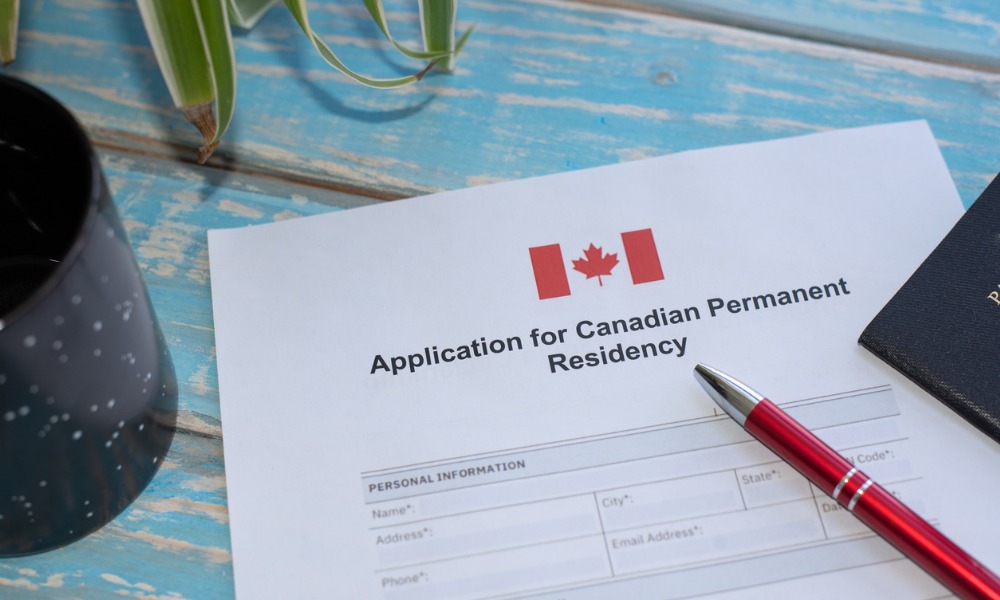
'We could solve this all if we granted permanent residency upon arrival. Most of these things wouldn't be necessary'

Grant migrant workers permanent residency upon their arrival in Canada — that’s the first recommendation of a recent report on how to fix the problems with the country’s Temporary Foreign Worker (TFW) Program.
“Canada is dependent on temporary migration for its economic and labour needs. While the number of admitted permanent residents in 2023 reached an all-time high of 471,550, the number of those living in Canada with temporary status between July 2022–2023 was far greater, at 2,198,679,” according to the report from Dalhousie and St. Thomas universities, P.E.I.'s Cooper Institute and the Madhu Verma Migrant Justice Centre.
“In 2023, 184,235 temporary residents were temporary foreign workers. This number has been increasing steadily over the years, more than doubling since 2018.”
And migrant workers without permanent resident status are suffering in Canada, the report noted.
The report said that migrant workers “experience predatory practices” in their home countries, and “exploitative practices often continue once the worker has arrived in Canada,” particularly in their workplace.
And even though the federal government has provided a tipline for reporting abuse for migrant workers, it does not seem to be making life better for these workers, according to the report.
“Given the preponderance of workplace abuses uncovered by researchers and the media, it is clear that the tipline and complaints-driven inspections are not catching or preventing abuses in the workplaces of temporary foreign workers in PEI and beyond.”
Last month, the Senate Committee on Social Affairs, Science and Technology noted that the TFW Program “is not working well for employers or workers”, and gave several recommendations for the federal government. That included the removal of employer-specific work permits. However, a number of stakeholders have expressed frustration over the Senate’s recommendation to fix the program.
However, “once workers were issued a closed work permit, they faced challenges, such as protective policies that did more harm than good and short-term work contracts that left them worrying about their status,” said the report from Dalhousie and St. Thomas universities, P.E.I.'s Cooper Institute and the Madhu Verma Migrant Justice Centre.
The report was based on 27 interviews with 29 participants, including 12 current or former temporary foreign workers; 10 current or former service providers; four provincial government employees; and three employer representatives. The interviews were conducted between October 2022 and July 2023.
The report also recommends that the federal government ensure better protected rights for migrant workers and more frequent unannounced workplace inspections to ensure employers are abiding by the rules of the program.
However, the first recommendation is the one that’s most important, according to Eliza MacLauchlan, lead author of the report.
"That overall recommendation is, OK, we could solve this all if we granted permanent residency upon arrival. Most of these things wouldn't be necessary," she said in a CBC report.
In May, the federal government granted Manitoba’s request to extend temporary resident status for potential Provincial Nominee Program (PNP) nominees who have work permits that will expire in 2024.
The full recommendations of the report are the following:
For the federal government:
By late 2020, the share of immigrants participating in the labour force surpassed that of the Canadian-born population. And in early 2024, the participation rate of immigrants outperformed Canadian-born workers by 2%, according to Royal Bank of Canada (RBC).
For the Prince Edward Island government:
P.E.I. is reducing its intake of immigrants this year, and it has caused employers to lose workers, according to two employer organizations in the province.
Also, immigrants in the province whose work permits are set to expire in 2025 should consider signing up for a training program for in-demand occupations in the island, said the province’s minister of workforce, advanced learning and population.